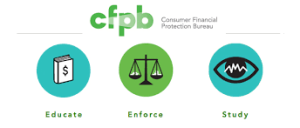The Consumer Financial Protection Bureau for Older Americans presents tips on preventing scams targeting seniors during the holiday season.
Scams targeting seniors occur every day, but you can count on scammers to ramp up their efforts to prey on people’s generosity during the holiday season. These grinches, armed with their dirty tricks, may even weave the holidays into elaborate stories to pull at your heartstrings as they slip their sticky fingers into your wallet.
During the holidays, the common scam known as the imposter or “grandparent scam” might be decorated with a special plea, a story of a relative in trouble who desperately needs money to fix a car or get out of jail – and home for the holidays.
The ruse known as the IRS scam takes on a vicious new twist with the caller threatening an elder with being arrested and spending the holidays in jail for unpaid taxes or a fake debt. And then there is the predictable increase in false or imposter charities, which sound identical to the real ones. The pitch is wrapped in sympathy inducing requests for year-end, tax-deductible holiday donations. These scammers stand ready to take your credit card or check routing information and charge you for bogus Nutcracker ballet tickets, or a holiday charity fundraising event.
Some Tips To Prevent Scams Targeting Seniors:
- Before offering your help to someone who claims to be a grandchild (or other relative/friend), be sure to telephone your family to verify that the emergency or urgent request is genuine.
- Beware of a caller who insists on secrecy. Never allow anyone to discourage you from seeking information, verification, support and counsel from family members, friends or trusted advisers prior to making any financial transaction.
- Take the following precautions to make sure your charitable donations benefit the people and organizations you want to help. If a caller claims to be from an established organization such as a hospital, charity, or law enforcement agency, look up the number of the organization independently and verify the claim before sending money.
- Ask for detailed information about the charity, including name, address, and telephone number.
- Then, call the charity directly. Ask if the organization is aware of the solicitation and has authorized the use of its name. The organization’s development staff should be able to help you.
- If you have received a letter from the IRS stating that you owe taxes, call the IRS directly at 1-800-829-1040 for information.
- The IRS will neither call to demand immediate payment, nor call without first mailing a bill. And, the IRS does not require you to use a specific payment method such as a prepaid debit card nor will they threaten you with arrest for not paying.
The Consumer Financial Protection Bureau is a rich resource for preventing, identifying, and solving financial issues. Specifically, they EDUCATE: An informed consumer is the first line of defense against abusive practices; ENFORCE: We supervise banks, credit unions, and other financial companies, and we enforce federal consumer financial laws; and STUDY: We gather and analyze available information to better understand consumers, financial services providers, and consumer financial markets. You can reach them at www.consumerfinance.gov/older-americans or (855) 411-CFPB (2372), TTY/TDD (855) 729-CFPB (2372).
How The Miller Elder Law Firm Can Help
Allow our experience in the field to work on your behalf. Contact The Miller Elder Law Firm today for an initial consultation at (352) 379-1900 or fill out our convenient contact form.
